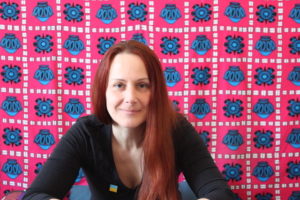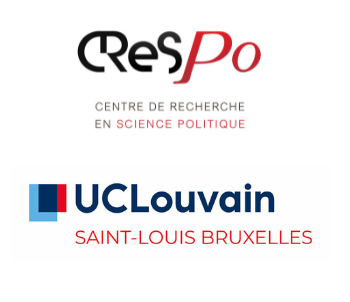 Professeure à la Rheinische Friedrich-Wilhelms-Universität Bonn (République fédérale allemande), Käte Hamburger Kolleg Recht als Kultur, professeure à l’Université de Varsovie (Pologne), juriste et sociologue, et spécialiste de la pensée de Norbert Elias.
Professeure à la Rheinische Friedrich-Wilhelms-Universität Bonn (République fédérale allemande), Käte Hamburger Kolleg Recht als Kultur, professeure à l’Université de Varsovie (Pologne), juriste et sociologue, et spécialiste de la pensée de Norbert Elias.
Marta Bucholc partage cet intérêt avec plusieurs membres du CReSPo, dont Florence Delmotte, Hugo Canihac et Christophe Majastre.
Elle a déjà participé à de nombreux évènements scientifiques au CReSPo, dont la conférence de 2018 Interdépendances mondiales ou l’atelier Law and Constitutions in the Civilising Processes en 2019. Elle était professeure invitée de février à avril 2020. Marta participe aujourd’hui au Groupe de contact « Droit et processus de civilisation » financé par le FNRS.
Marta Bucholc, chercheuse associée au CReSPo, a obtenu un ERC Consolidator Grant pour 5 ans.
The acronym is ABORTION FIGURATIONS.
Using Human Rights to Change Abortion Law:
Involvement Patterns and Argumentative Architectures in the Global Figuration of Human Rights
Abortion laws are the crux of human rights diversity today. They evidence best how differently human rights’ meanings are construed in various local settings. However, we know very little about how this diversity is generated in practice. This project will scrutinize the communication processes that use human rights as arguments to change abortion laws. We will contrast abortion debates from the last ten years in pairs of countries that represent three regional human rights systems: Mozambique and Senegal (the African Union), Poland and Ireland (the Council of Europe), and Argentina and Honduras (the Organization of American States). These debates show the ambivalence of human rights: they were used successfully to argue both for more liberal and more restrictive abortion laws. To explain this ambivalence, we will apply concepts of argumentative architecture and involvement patterns, coined by the PI as part of her figurational sociology of law, based on Norbert Elias’s theory of the process of civilization. Using a mixed-methods approach that combines qualitative sociology, legal analysis, and corpus linguistics, we will offer a multi-dimensional model for a globally comparative, interdisciplinary socio-legal study of human rights. We will study the structure, composition, and embedding of arguments, along with group perspectives, emotions, and circles of identification of arguing actors so as to arrive at a heat map that will show the distribution of involvement in argumentative architectures. By constructing a global meta-typology of argumentative architectures and involvement patterns in abortion debates, we will explore the integrative, civilizing potential of human rights and identify the centrifugal forces in human rights figuration that comprise the local, regional, and global levels. Finally, we will revisit the role of human rights as a universal toolbox for ideologies in order to plead their conditional rehabilitation.
Associée : 2024-2026.
